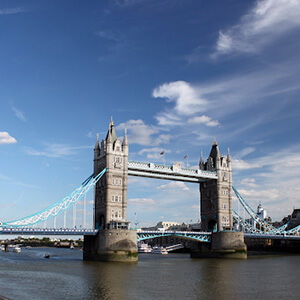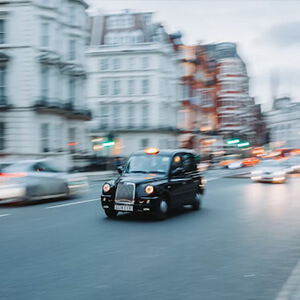Moving to the UK
The United Kingdom has attracted new residents from around the globe searching for a new life and a fresh start. Opportunities of all kinds are rife, particularly when it comes to London, the infamous capital of red buses and black taxi cabs. Around 15% of the UK’s general population is made up of people who were born outside of the UK, so expats from abroad will find that there are plenty of like-minded people who have already settled here.
There is no shortage of exciting things to explore, adventures to stumble across, and picturesque views to enjoy across the UK. Whether you choose to settle in exciting Manchester, stunning Scotland or the greener south coast, you’ll find somewhere to fall in love with.
While you might be excited already, there are many things you should be aware of before embarking on your British adventure. Take a look at our complete guide to your move to the UK for everything you should know.
Orientation
The United Kingdom, or Britain, is made up of England, Wales to the west, Scotland to the north, and the northern portion of Ireland. The island nation is located in northwestern Europe, with France as its closest neighbour, and is home to over 67 million people.
Greenwich Mean Time (GMT) is observed across the UK and the British Isles, which equates to 5 hours ahead of US Eastern Time. Between the end of March and the end of October, daylight savings is observed, meaning the clocks move forward an hour.
Learning the language
As an incredibly old nation, the UK has gained cultural influence from across the globe in various different ways. From Celtic beginnings in Wales, Scotland and Ireland, distinct languages, like Gaelic and Irish, are still spoken and taught in some schools. Language is a hotly debated topic, with some welcoming the changes that come with mixing with new cultures and others wishing to preserve an older form of English.
You should expect that English is spoken everywhere in the UK, as it is the official language. If looking for a job in the UK, a certain level of competence in English is expected. English is renowned as a language that is fairly easy to pick up, with few grammar rules to memorise such as with German or French.
With so many foreigners moving here, there is no shortage of courses for every level and at a variety of speeds. Whether you require a crash course or a quick brush-up, for work or daily life, there are plenty of opportunities to learn more English once you’ve relocated here. As an important lingua franca, English-speaking media should be fairly easy to come by even if you come from a non-English-speaking country, which makes for great practice.

Passports, Visas and Permits
Settling in the UK can be notoriously difficult, with countless rules and guidelines to follow before being allowed to stay for an indefinite stay. Let’s take a look at the steps you’ll need to take to move to the UK.
- Check your passports – Ascertain whether you and your family have passports of their own, all of which will be valid for 6 months longer than you intend to remain in the UK for.
- Research visa options – Depending on factors like your country of origin, the reason for your move to the UK, the length of time you want to remain here, and other personal details and circumstances will all impact the type of visa you require to move to the UK. Check if you need a visa on the UK government website.
Apply for your visa – Whether you’re moving for work, to be with family, or to study, there are distinct visas for each moving purpose. Applying for a visa is easier from inside the UK, but is possible from outside the country. Be aware that waiting times may vary for different circumstances, and the application fee along with other required funds should be considered carefully. Find out more specific information about UK visas from the government website.
Moving to the UK After Brexit
Prior to Brexit, citizens of the EU had a much easier road to moving to the United Kingdom. Now that the transition period is over, these are no longer universal across the European Union. Some agreements have been arranged between the UK and other specific countries so you’ll need to check your circumstances to ascertain your ease of travel in and around the UK.
Customs Requirements
Like in any country, the UK has specific guidelines for transporting personal belongings into the UK. If you are moving personal belongings for personal use or as a gift for someone in the UK, you shouldn’t need to pay duty tax. Prohibited items or items where you’ve surpassed any allowances should be declared upon arrival in the UK to avoid any fees or punishment. A list of simplified rates on items like alcohol and tobacco can be found on the UK government’s website.

Prohibited and Restricted Items
While there are limitations on some items, others are entirely prohibited from entering the country. These items will be seized at customs and you could be penalised for attempting to bring them into the UK. Prohibited items include:
- Offensive weapons
- Self-defence sprays
- Elements of endangered animals and species of plant
- Controlled drugs
- Obscene materials
- Rough diamonds
- Imports of meat and dairy products from most non-EU countries
Restriction apply to items like explosives, firearms, and ammunition, which require a licence to be brought into the UK. There are also restrictions on food and plant products if they may contain pests or diseases, or were not sourced in the EU. Any items, like pirated copies of movies or music, that are suspected to infringe on intellectual property rights will likely be seized and you could be prosecuted.
Taking a Pet
The UK is a nation of pet lovers, particularly dogs. If you are moving to the UK and are worried about whether your pet will be well-received, you can be sure they’ll have a great life here. As long as you are entering from a listed country, there are specific rules that allow entry for you and your pet. If you are entering the UK or returning with your dog, cat, or ferret, your pet must:
- Has a pet passport or health certificate
- Be microchipped
- Have had a rabies vaccination
For countries that are unlisted, there are specific rules on rabies vaccinations and blood tests that you’ll need to follow to transport your pet into Britain.
Taking a vehicle
If you’re planning on moving to a more rural area of the UK, you might consider using a vehicle when you’ve settled. You may already have a vehicle that you’d like to bring into the UK. There are certain steps to follow when taking a vehicle into Britain.
- Within 14 days of the vehicle’s arrival, inform HM Revenue and Customs
- If told to do so, pay any VAT and duty tax on the vehicle
- Get your car approved that it meets environmental and safety standards
- Tax and register your vehicle with the DVLA, at which point you will receive new number plates for your car
Make sure you insure your vehicle before it hits the road
Driving in the UK
A major difference that you’ll need to adjust to when relocating to the UK is driving on the left, as well as the other rules of the road here. Some other important rules to remember when driving in Britain include:
- Observe speed limits on signs by the road
- Everyone in the vehicle must wear a seatbelt
- You must stop at all traffic lights and stop signs
- Give way to emergency vehicles with sirens and flashing lights on

Finding Accommodation in the UK
Property in Britain is incredibly diverse. Whether you’re after a large house with several bedrooms or a small flat, there are plenty of options if you have the funds available. You may find that properties in the UK are smaller than they are in your home country, particularly newly built houses. Your financial circumstances will determine the type of property you will be able to rent or buy, as well as the location you’ll settle in.
You can rent or purchase property in the UK as a foreigner, whether it’s a house or a flat, with no legal restrictions of any kind. You should note that purchasing property does not guarantee you long-term residence in the UK. The correct residency permits and visas are still crucial to remain legally in the country, whether you own accommodation or not.
Social customs in the UK
Greetings, titles and names
When in formal situations or for people you don’t know, you should use “Mr”, “Mrs”, “Ms”, or “Miss” with their surname. However, in most cases, it’s normally perfectly acceptable to call people by their first names. This is appropriate with friends and colleagues in most businesses, and even some bosses in British companies. Women will often use pet names for one another, like “love” or “darling”, but men should avoid using these so as to not make women uncomfortable in conversation.
Common greetings for friends, acquaintances and colleagues including the following:
- Hello/hi/hey
- Good morning/afternoon
- How are you/how’s it going?
- You ok/you alright?

Alcohol and Drinking
Drinking culture can be a shock when assimilating into the UK lifestyle. Drinking is a social activity, both with friends and during or after work. Pubs tend not to have table service, so prepare to stand your ground in the crowd at the bar. Also be aware that when drinking with a group, drinks are bought in rounds. Make sure to pitch in and buy a round if you don’t want to be seen as stingy. Beer is typically sold in pints and is an immensely popular beverage to buy in rounds.
Tipping
Tipping in the UK is not as essential as it is in other countries like the US. Tips are considered extra for waiting staff and other professions rather than part of their living wages, which they are paid regardless of tips. If you wish to leave a tip, it is as a gesture of goodwill and when the service is particularly good. Some establishments might have the service charge included in the bill, which is usually around 10% of the price of the meal.
Interested in information on another country? Take a look at our other International Relocation guides.
Great customer Experiences start here
Very pleasent and helpful. Nothing too much trouble.
Mr M H moved from London, UK to Toronto, Canada
Very helpful and patient even when things got packed that we had to get out again!
Mr M E moved from Enfield, UK to Dorset, UK
Thanks to Graham, Nick and the entire crew!
Mr C D M moved from UK to Singapore
Friendly and helpful crew.
Ms T W moved from USA to Cambridgeshire, UK
